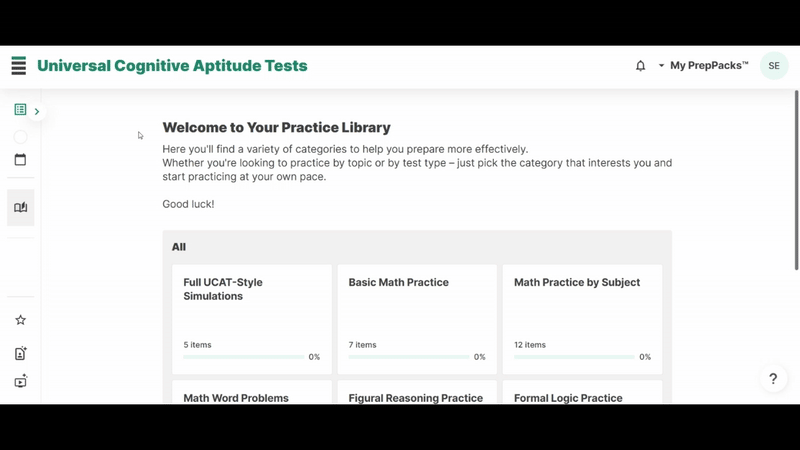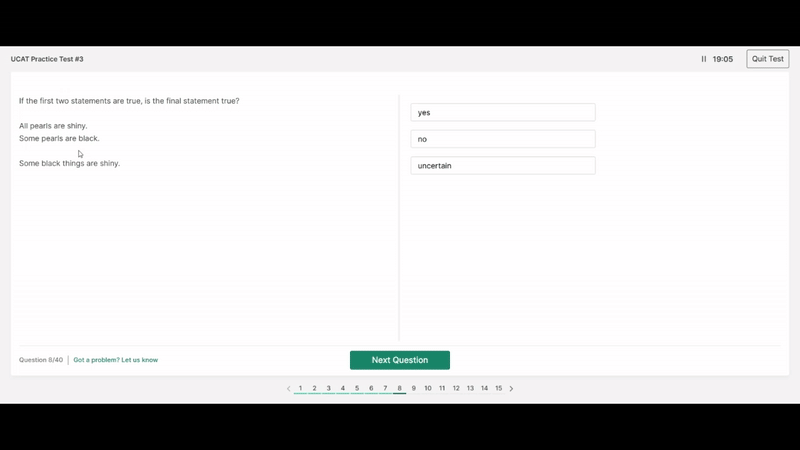Master the UCAT with confidence
Prepare for Criteria’s Universal Cognitive Aptitude Test (UCAT) with practice that mirrors the real exam. Build the core skills employers value – problem-solving, logical reasoning, information analysis, and learning agility – through realistic simulations and expert guidance designed to help you succeed.
The UCAT PrepPack includes:
- 5 full UCAT simulations – experience the actual test in terms of structure, question difficulty and time limitation.
- Targeted practice exercises – 58 drills for numerical word problems, figural reasoning, formal logic & tables and graphs.
- Thorough study guides & video tutorials accompanying all types of questions – improve your understanding and solving strategy before diving in.
-
Unlimited retakes during your subscription – build speed, accuracy, and confidence.

For the University Clinical Aptitude Test (UCAT\UKCAT) go to our dedicated UCAT\UKCAT guide, and free UKCAT practice page.
- 5 Full-length Criteria's UCAT simulation tests
- 6 Guides and video tutorials
- 19 Maths practice tests
- 7 Word problem practice tests
- 24 Figural reasoning practice tests
- 6 Formal logic practice
- 2 Tables & graphs practice
- 8 Guides & video tutorials
What You’ll Get with the UCAT Test PrepPack
Ready? Time for a Full Simulation
20 minutes | 40 questions

Who Are We?
At JobTestPrep, we’ve helped thousands of candidates pass competitive hiring assessments,
including those at McKinsey and other top consulting firms. Our materials are designed by
psychometric experts and updated based on real candidate feedback to reflect the latest game formats.
Founded in 1992 by David Meshulam, JobTestPrep has become a trusted leader in online test preparation. With 30+ years of experience, 220+ courses, and over a million success stories, we combine expert-crafted PrepPacks with AI tools like our CV Analyzer and Interview Prep platform to help candidates worldwide prepare with confidence.
FAQ's
You will have instant access to your PrepPack, which includes all your practice tests. You can start practicing immediately, learning from detailed explanations and guides, while tracking your performance with accurate, tailored questions to help you understand the correct approach to solving your assessment.
After your purchase, you will receive two emails. The first will contain your payment receipt, and the second will include a login link along with information about our general terms, conditions, and refund policy. To access your PrepPack, simply log in and reset your password.
No, there is no limit. Your progress is saved in your account, allowing you to revisit previous attempts. Our performance tracker helps you focus on the test sections that require more attention.
Yes, you can extend your practice period. Simply contact our customer success team via c.serv@jobtestprep.com.




